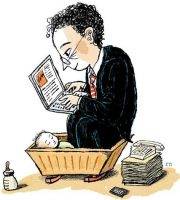August 31, 2016
Open and honest communication boosts staff engagement levels 0
 Employees who feel communication within their organisation is open and honest are nearly 15 times more likely to be engaged, and those who are encouraged to share ideas and opinions are 11 times more likely, claims a survey which suggests that staff want a more human experience, grounded in loyalty, recognition, respect, and honesty. Areas viewed as the best opportunities to differentiate in terms of staff engagement include above-average pay and benefits, a fun place to work, workplace flexibility, a strong fit with individual values, stimulating work, and a spirit of innovation. But according to results of the survey from Aon Hewitt what employees want in a workplace is not what they experience. And these gaps are having an impact on employees’ intent to stay. Of the 52 percent who would leave their current company for another job, 44 percent are actively looking. Opinions about what makes an employer stand out from other companies are similar across generations.
Employees who feel communication within their organisation is open and honest are nearly 15 times more likely to be engaged, and those who are encouraged to share ideas and opinions are 11 times more likely, claims a survey which suggests that staff want a more human experience, grounded in loyalty, recognition, respect, and honesty. Areas viewed as the best opportunities to differentiate in terms of staff engagement include above-average pay and benefits, a fun place to work, workplace flexibility, a strong fit with individual values, stimulating work, and a spirit of innovation. But according to results of the survey from Aon Hewitt what employees want in a workplace is not what they experience. And these gaps are having an impact on employees’ intent to stay. Of the 52 percent who would leave their current company for another job, 44 percent are actively looking. Opinions about what makes an employer stand out from other companies are similar across generations.











 We are more susceptible to infection at certain times of the day as our body clock affects the ability of viruses to replicate and spread between cells, suggests new research from the University of Cambridge. The findings,
We are more susceptible to infection at certain times of the day as our body clock affects the ability of viruses to replicate and spread between cells, suggests new research from the University of Cambridge. The findings, 
 The corporate real estate profession will be influenced, disrupted and transformed in the years ahead by a powerful combination of forces that are re-shaping business strategy and operations, consumer preferences, and how and where people want to live and work, according to a new report from CoreNet Global.
The corporate real estate profession will be influenced, disrupted and transformed in the years ahead by a powerful combination of forces that are re-shaping business strategy and operations, consumer preferences, and how and where people want to live and work, according to a new report from CoreNet Global. 
 There is a lurid headline in today’s Telegraph proclaiming that ‘Working in an office is as bad as smoking’. It’s been picked up by a number of other news outlets, has been splashed all over search engines and will no doubt join
There is a lurid headline in today’s Telegraph proclaiming that ‘Working in an office is as bad as smoking’. It’s been picked up by a number of other news outlets, has been splashed all over search engines and will no doubt join 
 How many people in the workplace genuinely trust their managers and employers? It’s a question that we should ask because the answer unfortunately is not as many as you might think. It’s almost certainly well below what an organisation supposes or expects. For example, a recent
How many people in the workplace genuinely trust their managers and employers? It’s a question that we should ask because the answer unfortunately is not as many as you might think. It’s almost certainly well below what an organisation supposes or expects. For example, a recent 
 Working on complex tasks and work that is based on interactions with other people rather than data or things appear to protect against cognitive decline, according to research presented at the Alzheimer’s Association’s International Conference in Toronto. Researchers in two separate studies claim that people whose work requires complex thinking and activities are better able to withstand the wider causes of cognitive decline. The results suggest that working with people, rather than data or physical things, contributed the most to the protective effect and could offset the widely reported effects of a Western diet on cognitive ability. Researchers found that people with increased white matter hyperintensities (WMHs) – white spots that appear on brain scans and are commonly associated with Alzheimer’s and cognitive decline – could better tolerate WMH-related damage if they worked primarily with other people rather than with things or data.
Working on complex tasks and work that is based on interactions with other people rather than data or things appear to protect against cognitive decline, according to research presented at the Alzheimer’s Association’s International Conference in Toronto. Researchers in two separate studies claim that people whose work requires complex thinking and activities are better able to withstand the wider causes of cognitive decline. The results suggest that working with people, rather than data or physical things, contributed the most to the protective effect and could offset the widely reported effects of a Western diet on cognitive ability. Researchers found that people with increased white matter hyperintensities (WMHs) – white spots that appear on brain scans and are commonly associated with Alzheimer’s and cognitive decline – could better tolerate WMH-related damage if they worked primarily with other people rather than with things or data.
 Giving employees more control over workplace design is the single most important contributing factor to their wellbeing, according to a new study. The Workplace & Wellbeing report examines the workplace design factors that influence wellbeing. The research team discovered that an invitation to participate in the design of the work environment raised levels of wellbeing, although increasing the level of participation did not necessarily increase the level of wellbeing. The research was led by the Royal College of Art’s Helen Hamlyn Centre for Design in partnership with architects Gensler and supported by a consortium of leading industry names: Milliken, Bupa, Royal Bank of Scotland, Kinnarps and Shell. The context for this project lies with a current ‘wellbeing deficit’ in the workplace which means absence from work costs the UK economy more than £14 billion a year according to the Confederation of British Industry.
Giving employees more control over workplace design is the single most important contributing factor to their wellbeing, according to a new study. The Workplace & Wellbeing report examines the workplace design factors that influence wellbeing. The research team discovered that an invitation to participate in the design of the work environment raised levels of wellbeing, although increasing the level of participation did not necessarily increase the level of wellbeing. The research was led by the Royal College of Art’s Helen Hamlyn Centre for Design in partnership with architects Gensler and supported by a consortium of leading industry names: Milliken, Bupa, Royal Bank of Scotland, Kinnarps and Shell. The context for this project lies with a current ‘wellbeing deficit’ in the workplace which means absence from work costs the UK economy more than £14 billion a year according to the Confederation of British Industry.
 UK growth had already eased from around 3 percent in 2014 to around 2 percent before the EU referendum due primarily to slower global growth, but the Brexit vote to leave the EU is likely to lead to a significant further slowdown. UK GDP growth is forecast to decelerate to around 1.6 percent in 2016 and 0.6 percent in 2017 according to
UK growth had already eased from around 3 percent in 2014 to around 2 percent before the EU referendum due primarily to slower global growth, but the Brexit vote to leave the EU is likely to lead to a significant further slowdown. UK GDP growth is forecast to decelerate to around 1.6 percent in 2016 and 0.6 percent in 2017 according to 

 According to
According to 








August 31, 2016
Addressing the five negative influences on organisational culture 0
by Matias Rodsevich • Comment, Flexible working, Knowledge, Workplace
(more…)